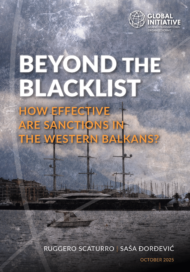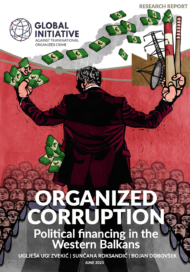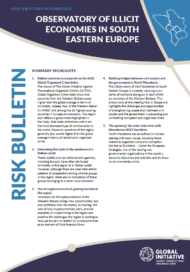Event Details
Where
Zoom webinar
Posted on 28 Oct 2025
Sanctions are a key instrument of national foreign policies, but their impact depends on how effectively they are implemented. This policy brief examines how actors in the Western Balkans respond to and circumvent sanctions by countries like the US and the UK through a range of political and economic maneuvers. Drawing on seven case studies across the region, it exposes how sanctions regimes can be undermined in practice.
Case studies provide detailed evidence of how sanctions are bypassed. They describe strategies such as transferring assets to proxies, establishing new legal entities, participating in procurement schemes through rebranded companies, leveraging informal or state-tolerated markets, asset transfers to relatives and proxies, lobbying foreign governments to overturn designations, reframing sanctions as foreign interference to bolster domestic legitimacy, and initiating legal reforms that shield them from accountability. These maneuvers highlight the political and economic interests at stake and demonstrate how sanctions can be reshaped and weakened through existing networks and systemic vulnerabilities.
Sanctions by countries like the US and the UK often have limited reach, both geographically and legally. While they can harm the reputation of targeted individuals and companies worldwide, they may also disrupt business operations, especially if local firms have financial ties to US- or UK-based entities – those partners might sever connections to avoid secondary risks. But the legal impact usually stays within the borders of the issuing country. The effectiveness of these sanctions mainly depends on whether local law enforcement or regulators, where the targeted entities operate, investigate for organized crime or corruption suspicions.
The report explores how sanctions evasion in the Western Balkans is deeply embedded in governance structures, economic interdependencies and geopolitical positioning. By examining the mechanisms through which evasion occurs, the analysis underscores that the region is not just a site of sanctions alignment but also a terrain where evasion strategies can thrive. Addressing these dynamics requires more than formal legal instruments; it demands an understanding of how sanctions intersect with power, networks and institutional weakness.




